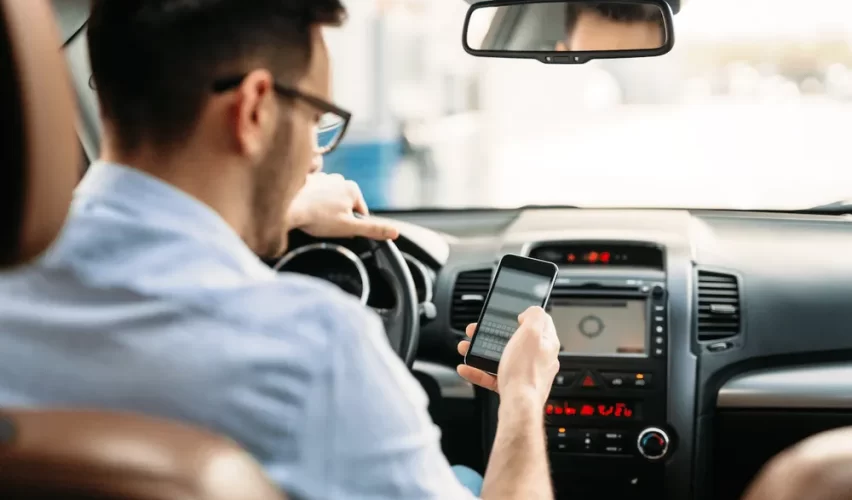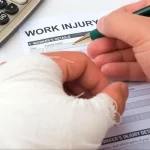Distracted Driving — A Growing Danger on the Road
Distracted driving has become one of the leading causes of accidents on the road. Whether it’s texting, talking on the phone, eating, or fiddling with a GPS, distractions take a driver’s attention away from the road and increase the likelihood of a crash.
If you’ve been hit by a distracted driver, you may be facing not only physical injuries but also the stress of dealing with insurance claims, medical bills, and legal battles. Knowing what to do after an accident caused by a distracted driver is critical to protecting your rights and ensuring you receive the compensation you deserve.
In this post, we’ll walk you through the essential steps to take if you’re involved in a crash with a distracted driver, and explain how the law treats these cases. By understanding your legal options and acting quickly, you can make sure you’re fully compensated for your injuries and losses.
1. Recognizing a Distracted Driver Accident
The first step after being hit by a distracted driver is to determine if distraction was indeed the cause of the accident. There are certain signs that can point to distracted driving, including:
1.1 Common Signs of Distracted Driving
-
Swerving or Weaving: A distracted driver may have trouble maintaining a straight line in their lane, which could result in swerving, sudden lane changes, or even hitting another vehicle.
-
Failure to Stop or Yield: If the driver fails to stop at a red light, stop sign, or yield to pedestrians, they may be distracted by something other than the road.
-
Delayed Reaction Times: A distracted driver may react slowly to sudden changes in traffic conditions, such as not braking in time to avoid a collision.
-
Physical Evidence: If the driver is seen holding a phone or eating, it can be an indication of distracted driving. Similarly, if the accident occurred after the driver looked away from the road, it can suggest distraction.
1.2 Types of Distractions
-
Texting or Talking on the Phone: The most common and dangerous form of distraction. Texting requires visual, manual, and cognitive attention, which significantly increases the risk of an accident.
-
Using In-Car Technology: Adjusting the radio, using a GPS, or setting up a phone call can all divert a driver’s attention from the road.
-
Eating or Drinking: These tasks may seem harmless but can cause drivers to take their eyes off the road or their hands off the wheel.
-
Talking to Passengers: While not as dangerous as texting, conversations can distract drivers and cause them to lose focus.
2. Steps to Take Immediately After the Accident
If you’ve been hit by a distracted driver, it’s essential to act quickly and follow these steps to protect yourself legally and physically:
2.1 Ensure Safety First
-
Check for Injuries: Make sure you and your passengers are okay. If there are injuries, call 911 immediately. Don’t attempt to move anyone who’s injured unless there’s an immediate danger (like a fire).
-
Move to a Safe Area: If possible, move to the side of the road to avoid blocking traffic. Turn on your hazard lights to alert other drivers.
2.2 Call the Police
-
Report the Accident: Call the police and file an official accident report. In cases of distracted driving, it’s crucial to have a police report documenting the accident and any evidence of the other driver’s behavior.
-
Request a Report: The police will collect statements, take photos of the scene, and document any signs of distraction, which can help support your case later.
2.3 Gather Evidence
-
Photographs: Take pictures of the scene, the vehicles involved, damage, skid marks, traffic signals, and anything else that can provide context for the crash. Be sure to photograph any evidence of the other driver’s distraction, such as a phone, food, or spilled drink.
-
Witness Statements: If there are any witnesses to the accident, ask for their contact information and ask them to provide a statement. A third-party witness who saw the other driver using a phone or exhibiting other signs of distraction can be invaluable.
-
Driver’s Information: Get the other driver’s contact information, driver’s license number, license plate number, and insurance details.
2.4 Avoid Apologizing or Admitting Fault
-
Don’t Admit Fault: Even if you feel that you were partially to blame, do not admit fault at the scene. Distracted drivers often try to downplay their actions or deny their distraction, so it’s important to let the evidence speak for itself.
-
Don’t Settle on the Spot: Avoid discussing compensation or settling with the other driver right away. You may not fully understand the extent of your injuries or damages immediately after the accident.
3. Proving Distracted Driving in Your Case
To win your case and receive compensation for your injuries, you’ll need to prove that the other driver was distracted at the time of the accident. Here are some strategies for proving distracted driving:
3.1 Obtaining the Police Report
-
The police report will include details of the accident, including whether the officer suspects the other driver was distracted. Officers may note if they observed the driver using a phone or if the driver admitted to being distracted.
3.2 Witness Testimony
-
Eyewitnesses who saw the other driver texting, talking on the phone, or engaging in other distractions can provide important testimony that supports your claim.
3.3 Phone Records
-
If the driver was texting or talking on the phone, their phone records can serve as evidence. Your attorney can subpoena these records to prove that the driver was distracted at the time of the accident.
3.4 In-Car Technology or Dashcams
-
If the distracted driver was using a GPS or another device in their car, these records can sometimes be used as evidence.
-
Additionally, if you or another vehicle involved in the crash has a dashcam, the footage can provide critical proof of the other driver’s actions.
4. Legal Options for Distracted Driving Accidents
If you’ve been injured by a distracted driver, you may be entitled to compensation for your injuries, medical bills, lost wages, and pain and suffering. Here’s what you can do:
4.1 File a Personal Injury Claim
-
Insurance Claim: First, file a claim with the insurance company of the distracted driver. If the driver is at fault, their insurance should cover your medical expenses and damages.
-
Litigation: If the insurance company offers an inadequate settlement or denies the claim, you may need to file a personal injury lawsuit. This process can be complicated, so it’s advisable to work with an experienced attorney to build a strong case.
4.2 Seek Damages
-
You may be entitled to compensatory damages for:
- Medical Expenses: Past, present, and future medical bills for treatment related to the accident.
- Lost Wages: Compensation for time missed from work due to injury.
- Pain and Suffering: Non-economic damages for physical and emotional distress caused by the injury.
5. How a Personal Injury Attorney Can Help
A personal injury lawyer can be instrumental in helping you recover damages after being hit by a distracted driver. Here’s how an attorney can assist:
5.1 Investigate the Accident
-
Your lawyer will investigate the cause of the accident, gather evidence, and collect witness testimony to build a strong case proving that the driver was distracted.
5.2 Negotiate with Insurance Companies
-
Insurance companies often offer low settlements, but your attorney will negotiate on your behalf to ensure you receive fair compensation.
5.3 Represent You in Court
-
If your case goes to trial, your attorney will represent you in court, presenting your evidence and fighting for your rights.
Conclusion: Protecting Your Rights After an Accident with a Distracted Driver
Being hit by a distracted driver can be a frustrating and overwhelming experience. However, knowing the right steps to take immediately after the crash, gathering strong evidence, and understanding your legal rights can help you navigate the process and ensure that you’re fairly compensated for your injuries.
If you’ve been involved in an accident caused by a distracted driver, don’t hesitate to reach out for legal help. A personal injury lawyer can help you secure the compensation you deserve and ensure that the responsible party is held accountable for their actions.





